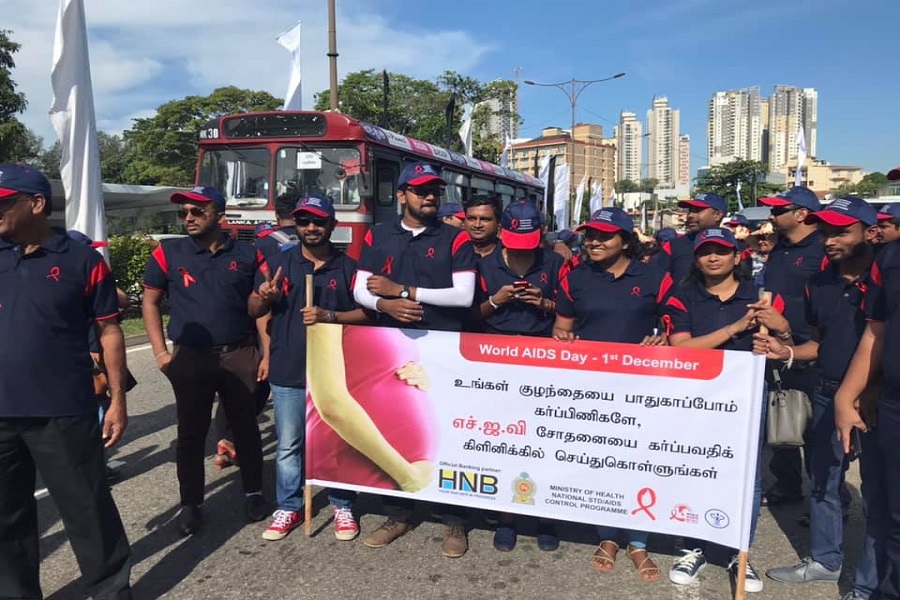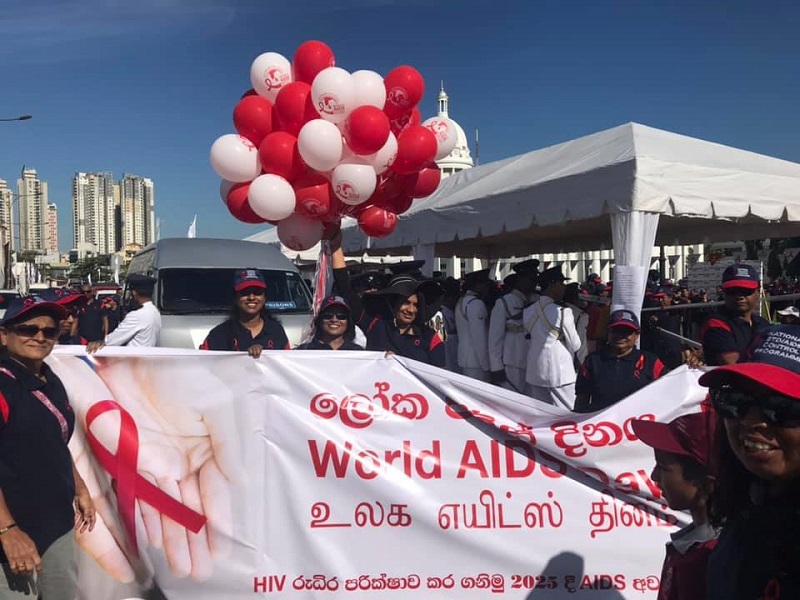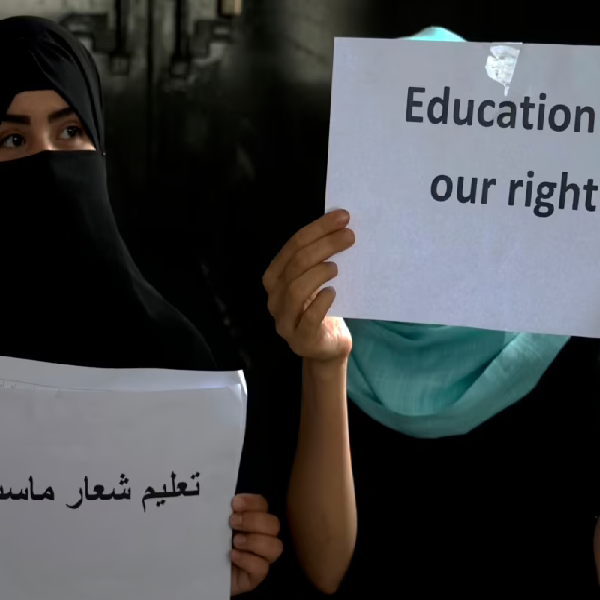
Raising awareness of the HIV epidemic and the successful viral suppression via modern medication, followed by sensitizing the public with a focus to eliminate stigma and discrimination based on myths and misconceptions, is a strong message penetrative among the public. But, alas, days passed and did people even care?
Sri Lanka had its share on celebrating the special event on December 1st, the 30th annual World AIDS Day was celebrated in the Bandaranayake Memorial International Conference Hall (BMICH), Colombo, organized by the National STD/AIDS Control Program, the principal government body that is involved in prevention of HIV and other Sexually Transmitted Infections (STIs). The event was followed by a cheerful parade which was a flow comprised with many entities, including the Government, non-government organizations, individual activists and people from many communities.

FPA
The event was obviously gallant, nevertheless, amid political crisis many among the Sri Lankan society find the best interest to converse about democracy and constitution centered by the spotlight of how the dancing in the political arena is being taken place rather than having a spared minute to learn about HIV, or literature that follows HIV.
In showing support to the PLHIV (People who are Living with HIV) community, some pinned themselves with red ribbon, some joined the parade held in Colombo, and some changed the Facebook filters on their profile pictures, albeit amid existence of a media coverage that is extremely low and subtle. Some of the most recent and important facts revealed about HIV denoted that it cannot be passed on if the treatments are being effectively taken. HIV is no longer referred to as a doorway to AIDS, or as a deadly disease that kills people. AIDS, or Acquired Immunodeficiency Syndrome, is a dying term that is being replaced by a more civilized term, ‘severely HIV positive’, by medical personnel. Are these facts even being made available on the mainstream media?
International AIDS Conference in 2017 declared that people with an undetectable viral load on a successful suppression through continuous ART (Antiretroviral Treatments) cannot pass the virus into another person even without the use of a condom. In 2018, it is proclaimed that people who are living with HIV are no different to any other person diagnosed to have another form of a chronic condition. “HIV is AIDS! AIDS kills people!!” is an extinct era that does not come back, unless you are in a tendency to drag your bigotry into the conversation by continuing to avoid the facts.
The World Health Organization quotes the following,
“The science related to the use of ART as an additional prevention tool is clear: there is no evidence that individuals who have successfully achieved and maintained viral suppression through ART transmit the virus sexually to their HIV-negative partner(s). The preventive benefits of ART should be appropriately emphasized in HIV treatment and prevention programmes.
WHO recognizes that awareness of the treatment and prevention benefits of ART should be promoted, in order to encourage HIV testing uptake, and to support people to access and adhere to ART as early as possible.
WHO HIV-related guidance promotes health equity, gender equality and human rights. It continues to push for greater efforts in providing primary prevention and addressing the structural barriers that increase the vulnerability of people and communities to HIV.”
The Terrence Higgins Trust (UK) also states their ‘can’t pass it on’ message as follows;
“Scientific evidence shows that people on effective treatment for HIV are not infectious. This is because the treatment will reduce the amount of the virus in their blood to such a low level that it is no longer able to infect someone via the usual routes. That’s a really important and remarkable thing for a number of reasons. First of all, it means there should be no new HIV infections. We can stop HIV being passed on by encouraging people to get tested and treated.
Secondly, it should take away all the stigma, and it really does allow people to have relationships and live normal lives without fear. But the reality is so far from what most people’s awareness of HIV is, and there’s still so much work to do before people are up to date with what HIV means today.“
We can agree that HIV is not often conversed in an open tone for its affiliation with sex. Because citizens in Sri Lanka do not have sex. Babies fall from flying cranes and pleasure is not scientifically validated, per Sri Lankan point of view! Nevertheless, the stigma and discrimination veil upon the topic amid many wrong conceptions systematically being promoted through media and by vocal cords confine the possibility to open up a discussion about knowing your status, the importance of knowing your status and using protection.
Stigma and discrimination is an affront to human rights and puts the lives of people living with HIV and key populations in danger. Learning is important, and alienation before a sensitive topic often describes your fear of the unknown. Media bodies should be responsible in providing you accurate information. HIV should not be limited to a just conversation sounds once in a while, or in a dedicated day that comes once a year for celebration and commemoration. The content folded before you is a small endeavour I give in keeping a sustainable conversation between us, which I believe would be beneficial to most of our readers.





